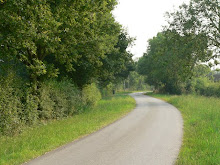Our caring, sharing coalition government has dropped its proposals to sell off forestry commission lands, following a consultation process which showed this move to be almost universally unpopular. Hats off to them for listening.
Was I attracted by the "hands off our forests" campaign?
Not instantly.
I saw little real reason why access (which seemed to be the main objection) could not be maintained, or even enhanced under private ownership. Indeed, there is good money waiting to be made just by attracting more people into our forests, and by enhancing their interest with better facilities and information, never mind more imaginative, as yet untried ways of sweating the assets. There is a conservation argument, of course. But there again, vast swathes of forestry commission land are wildlife deserts, planted as they are with nothing but conifers. I wonder how many of the great and good who got behind this campaign actually do visit our forests. Fewer than protested, I suspect.
Now, I'm not saying that they should be privatised. I'm saying that I wouldn't automatically assume they shouldn't. In my own local forest, I was deeply irritated to see so many "Hands off our Forests" notices pinned to gates and of course trees ( I hope the protesters will remove them now), but I was not persuaded by a slogan alone to join the campaign.
The Forestry Commission does cost the taxpayer some £95 million a year. I think. I say "I think," because determining from the Forestry Commission Annual Report what exactly they do cost us is no easy task. It is an astonishing 142 pages long. A veritable forest of largely irrelevant information. Within it, to my untrained eye, it was next to impossible to sort - dare I say it - the wood from the trees. I am used to dealing with financial reporting which is a good deal crisper. To me, a report which is clear on the financials indicates a management team which is on top of things. In the Forestry Commission's reporting, you need a chainsaw to hack away and get to the facts. This makes me suspicious that the facts, if known, would not be very edifying. And it suggests to me a management team, which, extensive and well paid though it appears to be, hasn't got a Scooby. In particular, one statistic eluded me. I was interested to know how much revenue the Commission was generating from its vast assets. I'm still interested. Moreover, it is surprising, and damning to my mind, that the Forestry Commission can be sat on such huge assets, and not turn a profit from them for the public purse. But perhaps I'm just plain ignorant of the neccessary complexities of running woodland in the public interest. Or perhaps I just couldn't make head nor tail of the reporting. Not sure.
So. Woodland is still "ours".
Good?
Maybe.
But if I were in government, I'd be looking to fire up my chainsaw, and start hacking at the management of our beloved forests.
Friday, 18 February 2011
Subscribe to:
Post Comments (Atom)

















It is indeed an odd reflection that we somehow think that Public ownership will instinctively give us a better result than Private ownership, when surely it is just the clarity over the rules and a willingness on the part of Government genuinely to enforce them. Is BA better now than in public ownership? My sense is that we have been bitten in the past by weak regulation and that is the issue. Of course, as the world becomes more global, I wonder if this will change...
ReplyDelete